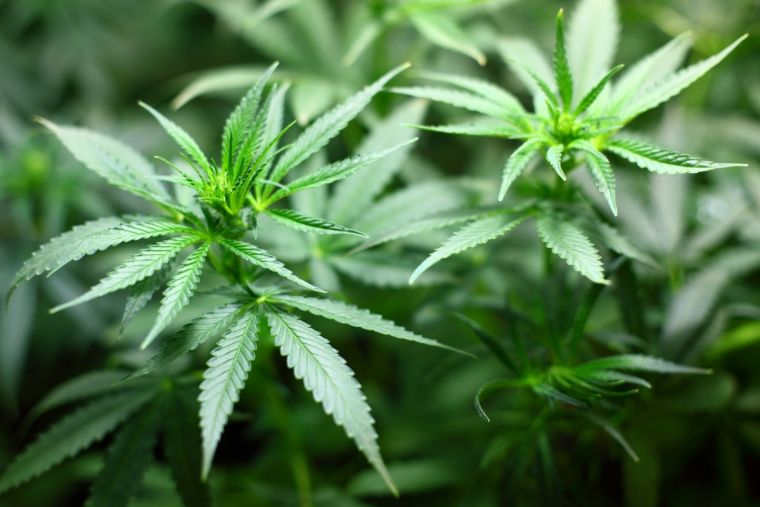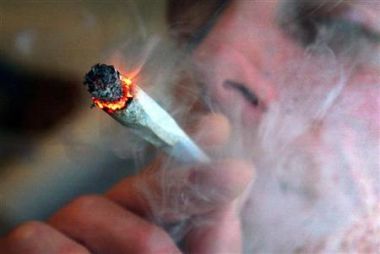If cannabis is legal, does that make it right?
Evangelical Christians, historically mouthpieces for the so-called 'war on drugs' in America since at least the Ronald Reagan administration, have gradually quietened down about cannabis as it becomes slowly legalised across the US.
And so today, as recreational use of the drug becomes legal in California, there is an absence of any coordinated evangelical response, while – perhaps even more shockingly – the Catholic Church in the US, the bishops' conference, ducks out of taking any official position at all.

This, despite the growing evidence that strong cannabis – including 'skunk' as it is known in the UK – is linked to severe and sometimes long-term mental illness: in 2015, scientists at Kings College London including the leading psychiatrist Marta Di Forti (a Catholic, as it happens, and an exceptional doctor, I happen to know) found that 'skunk-like' cannabis was linked to some 24 per cent of first-episode cases of psychosis.
True, after Washington and Colorado legalised the recreational use of marijuana in 2013, the conservative pastor John Piper argued on his blog that Christians should oppose marijuana use because the Bible that 'your body is a temple of the Holy Spirit'.
He went on: 'Keep [your body] clean and ready for [God's] use...Don't dull your God-given powers of seeing clearly, and observing accurately, and thinking soundly, and remembering helpfully.'
Piper was joined by Joe Carter, director of communications for the public policy arm of the Southern Baptist Convention, who argued on his blog that marijuana use is almost always sinful. Carter told Jonathan Merritt of the Religion News Service that though the Bible doesn't specifically mention marijuana, 'we can reason analogically from Scripture to the similar case of alcohol'.
As Merritt put it: 'Because the Christian scriptures prohibit drunkenness, Carter reasons that marijuana intoxication would also be a sin.'
Many pro-cannabis users and campaigners seek to compare legal alcohol to illegal drugs, but the difference is that you can drink, say, wine without getting drunk (as indeed Jesus did) but you cannot take cannabis without getting stoned, or 'high' as users like to call the sensation.
I call it mentally ill.
And here, a disclaimer, or perhaps a confession is needed. I tried strong cannabis – probably skunk – as a teenager and it made me extremely sick and paranoid for at least 24 hours. That experience ensured that I never messed around with that (or any other) drug again, but there is a case for saying that when I suffered a bout of severe mental illness some years later – about which more one day – the spliff had come back to haunt me. Certainly, the figures from Kings seem, if anything, modest to me from anecdotal experience when it comes to the reasons behind most young people languishing in the locked wards of the UK's mental hospitals.
It seems to be bizarre, to put it mildly, that churches who (rightly in my view) argue controversially against what to many seem like rational policies such as euthanasia for the suffering, on the grounds that life is God-given, stay shamefully silent on the issue of a drug that alters – warps – the God-given mind.

As Peter Hitchens, the Anglican columnist for the Mail on Sunday and campaigner against cannabis, tells me: 'There are many reasons why Christians should not stupefy themselves. God gives us the senses that we have, and the minds with which to make sense of them. If we do not like the world which we then perceive, then we must act to make it better, insofar as it lies within us to do so. For some, this may involve no more than self-reform, to behave better towards others. This cannot conceivably include dulling our wits. To others, to whom greater responsibilities have been given, we must engage in works of charity or reform. To respond to discontent by fuddling our minds into a flaccid passivity is to throw a gift back in the face of Him who gave it to us.
'Our capacity to feel (however briefly and rarely) euphoria of any kind is surely given to us as a reward for hard work, courage, endeavour, for example, the completion of a great task or the performance of a great piece of music, victory in a just battle, human love. To achieve such euphoria through drugs is to cheat your way to an undeserved reward. And if pleasure comes, in general, undeserved and without work or effort, how long can a civilised society be maintained?'
Cannabis legalisation has become fashionable. That does not make it right.











